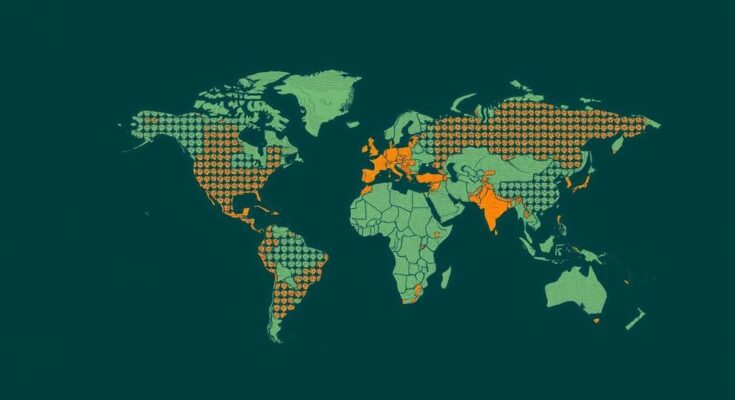A study from Uppsala University reveals that global acceptance of rationing fossil fuels and high-emission foods is on par with taxation acceptance. Surveying over 8,600 participants across multiple countries, it finds significant willingness to consider rationing, especially among those concerned about climate change, underscoring the potential for this approach in curbing emissions.
A recent study conducted by the Climate Change Leadership group at Uppsala University in Sweden has revealed that global populations are largely accepting of rationing methods for fossil fuels and high-emission foods, such as meat, akin to acceptance levels for taxation on these items. The study surveyed over 8,600 individuals across diverse countries including Brazil, India, Germany, South America, and the United States, marking a significant contribution to research that has traditionally favored economic measures such as carbon taxes to mitigate climate-damaging consumption. Oskar Lindgren, the doctoral candidate who spearheaded the investigation, remarked, “Rationing may seem dramatic, but so is climate change. This may explain why support is rather high. One advantage of rationing is that it can be perceived as fair, if made independent of income. Policies perceived as fair often enjoy higher levels of acceptance.” The research findings indicate that 33 percent of respondents were amenable to rationing meat and other foods with substantial environmental impacts, while a higher percentage, 44 percent, were in favor of taxation on these same items. Regarding fossil fuels, acceptance for both rationing and taxation was nearly equal, at 38 percent and 39 percent respectively. Notably, Americans exhibited the least openness to these measures, though a significant majority of respondents across all surveyed nations expressed concern regarding climate change, and this group demonstrated the strongest support for rationing. Additionally, younger and more educated individuals showed a more favorable inclination towards this approach. The researchers emphasize the need for further investigation into public attitudes surrounding rationing policies and the structuring of such initiatives, expressing optimism about these encouraging findings.
This article addresses the emerging discourse around the notion of rationing as a feasible strategy to mitigate climate change effects. Traditionally, policy discussions have centered on economic tools, particularly carbon taxes, aimed at reducing consumption that adversely affects the environment. However, the study from Uppsala University broadens the investigation to include public perceptions of rationing measures, thereby offering a novel perspective on policy acceptance in the context of climate action.
In conclusion, the study from Uppsala University highlights a significant degree of public acceptance for rationing as a method to reduce fossil fuel use and consumption of high-emission foods, suggesting a counterpart to tax measures. The findings indicate a critical need for further exploration of public attitudes toward these policies, with implications for future climate change mitigation strategies.
Original Source: macaonews.org




